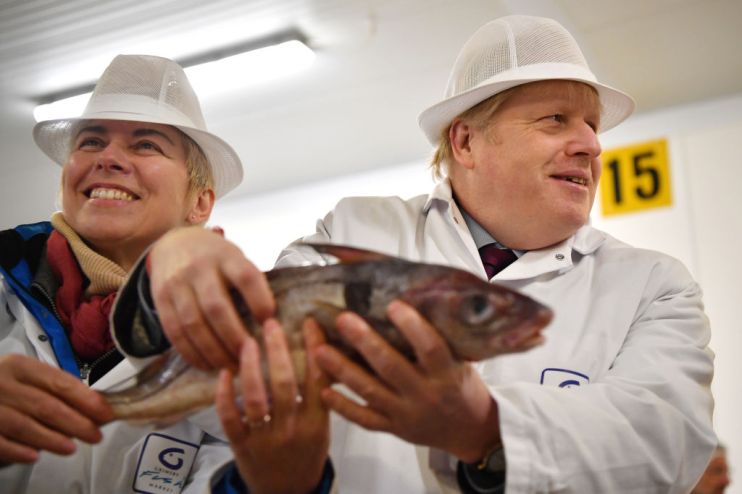How the Tories could become the party of the working class

Polls are inherently unreliable. We know this from the 2017 election, the 2015 election, the 2016 EU referendum — the list goes on.
The latest polls show a roughly 10-point lead for the Tories. That should be enough to form a government, but is some way off the 68 seat majority that YouGov’s famous MRP poll predicted two weeks ago.
This is indicative of the fluidity of the electorate. Given that 74 per cent of people who voted in the European elections in May 2019 opted to support a different party to the one they did in the 2017 General Election, churn is likely to play a big part.
CCHQ knows that success relies on the Tories securing the votes of working class voters in the Midlands and North. The so called “Red Wall” holds the keys to Number 10 — and there are signs that this bulwark for Labour since time immemorial may be crumbling.
That’s why Boris Johnson was up in Grimsby on Monday. In the final days of the campaign, the strategy is to bombard swing voters in these key seats with the central message of “Get Brexit Done”. While many will already be feeling browbeaten by the mantra, it appeals to voters in Labour’s traditional northern heartlands who feel confused or betrayed by Jeremy Corbyn’s stance.
For those who voted to “take back control” in 2016, Corbyn’s offer of a second referendum between an anodyne deal negotiated by a Labour government and remaining in the EU does not represent a real choice. The Prime Minister’s “oven ready” proposition may seem more appealing, even to lifelong Labour voters.
But that’s just the start. Fundamentally, what may swing it for the Tories in these seats is the disconnect that many feel between their values and those of a London-centric Labour party that has abandoned them. The liberal cosmopolitanism espoused by the party’s leading proponents plays well in Corbyn’s own seat of Islington North, but less well in Dudley North — a key target for the Conservatives, which Labour holds by just 28 votes.
Immigration is the most obvious example of this divide. Labour continues to champion the merits of free movement, seemingly in denial that the Brexit vote was driven in part by a desire to control it.
In contrast, over the weekend the Conservatives announced details of their new points-based system that would welcome those with “exceptional” talents or much-needed skills into the UK, and restrict entry for low-skilled migrants to industries where there are labour shortages.
This approach, which is about controlling access rather than just cutting numbers, appeals to voters because they feel that they are being listened to.
Finally, there’s the culture wars element that plays well in key marginal seats currently held by Labour such as Wakefield, Leigh and Bolsover: patriotism.
In an interview with ITV’s Julie Etchingham, Corbyn got the timing of the Queen’s Christmas message wrong (he said it takes place in the morning when it is actually aired at 3pm). While Labour HQ may dismiss such a slip, it provides confirmation to socially conservative Labour voters of what they instinctively feel in their gut — Corbyn is not a politician who relates to them.
Whether that is enough is anyone’s guess. But by the end of this week, the traditional electoral maths that has been received wisdom for so many decades may have been turned utterly on its head.
Main image credit: Getty